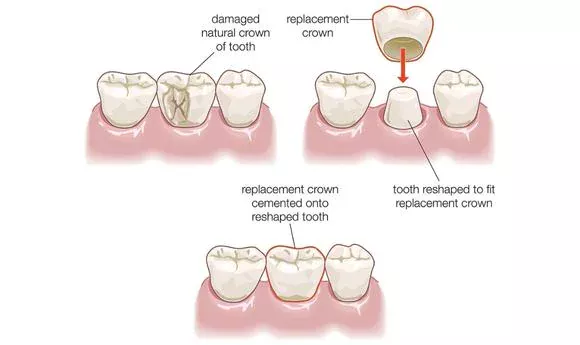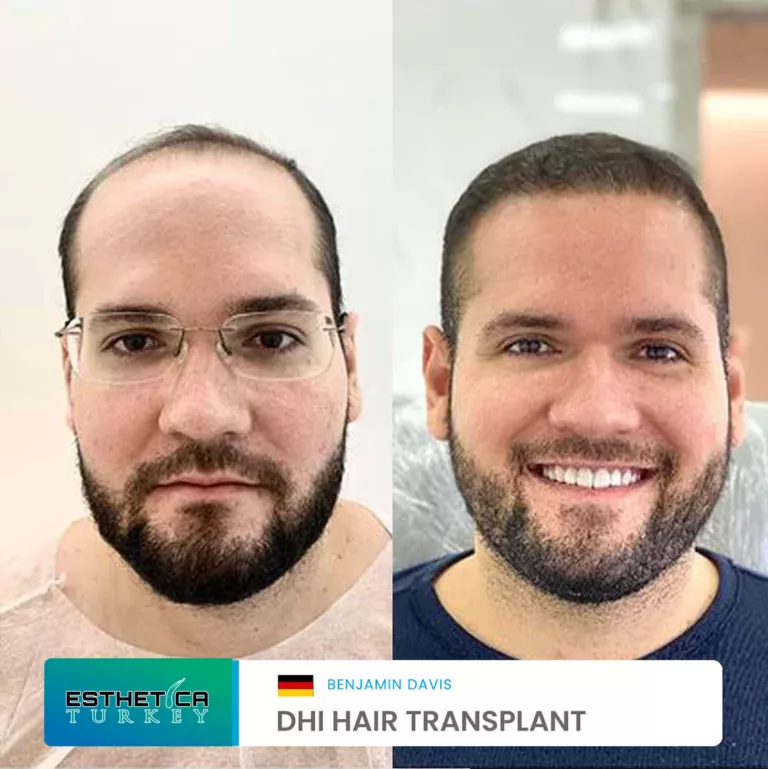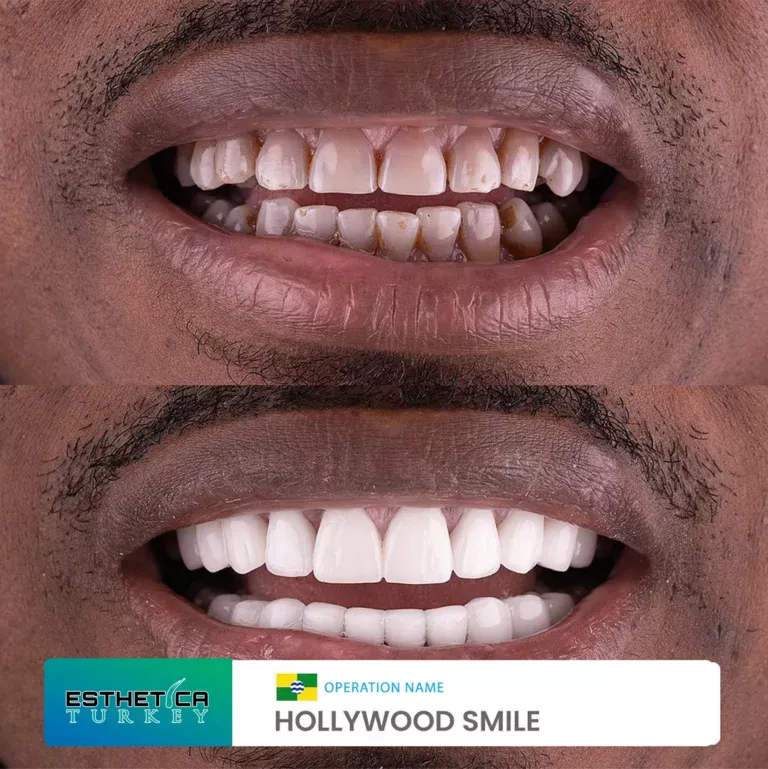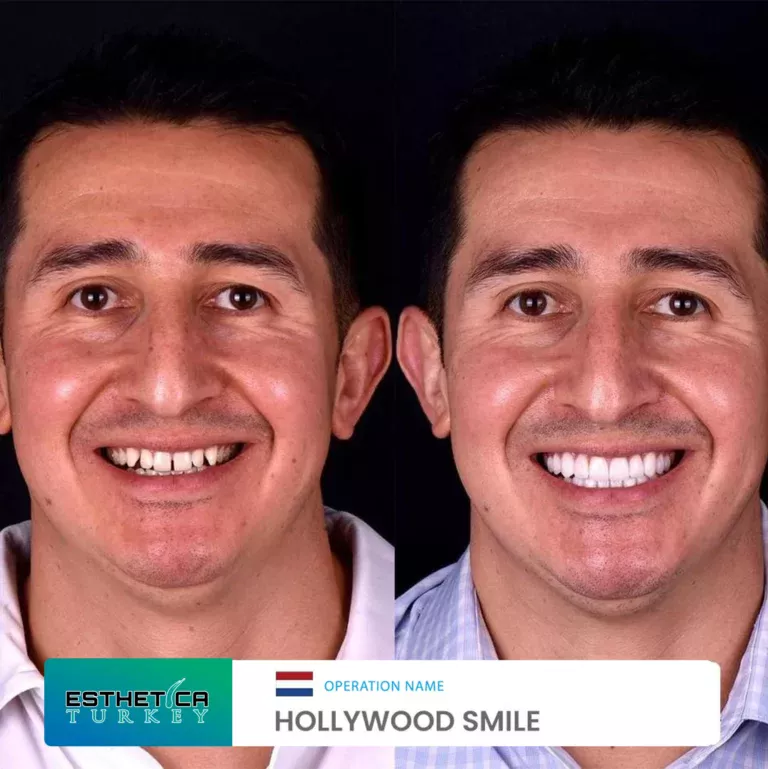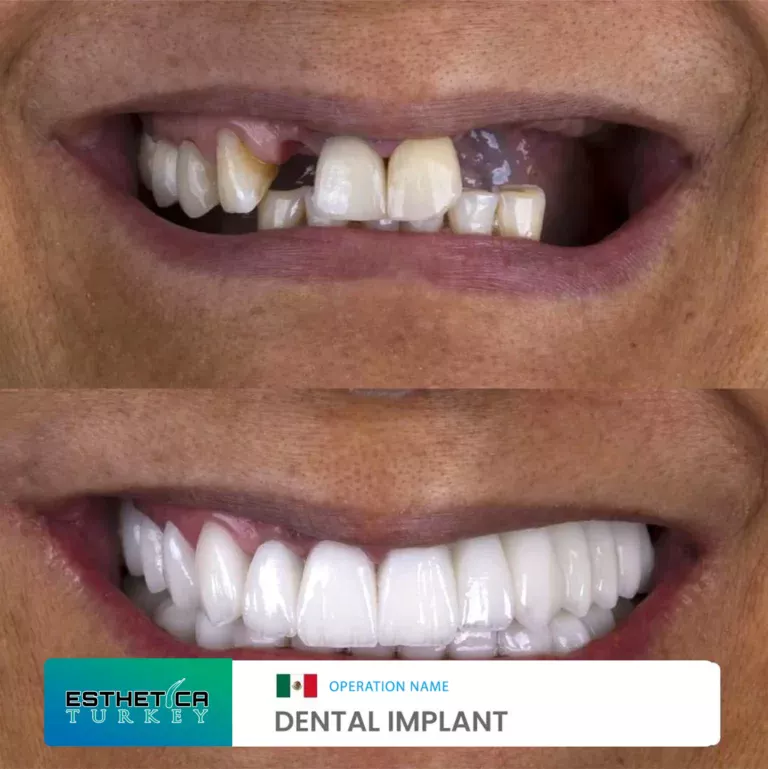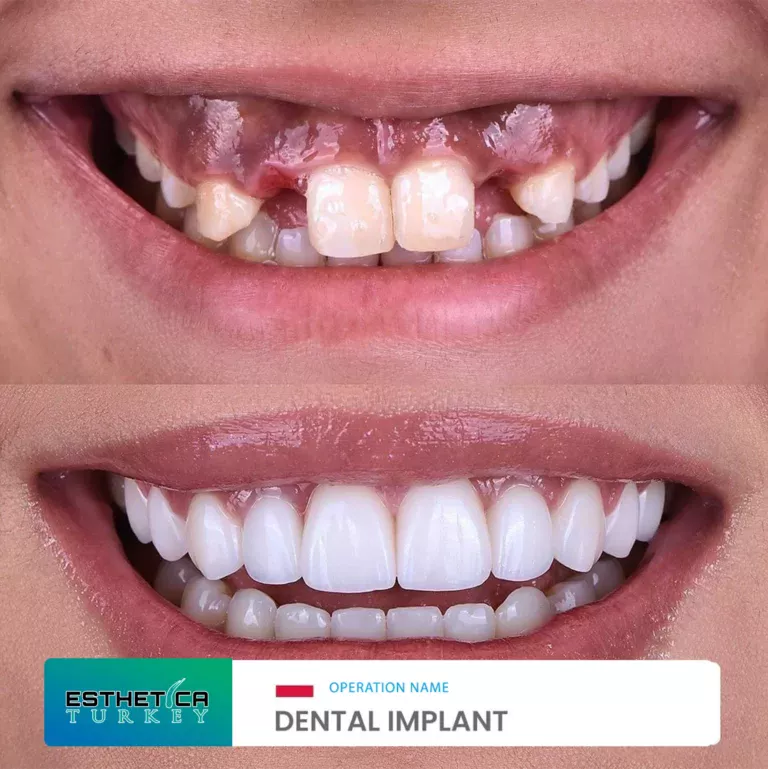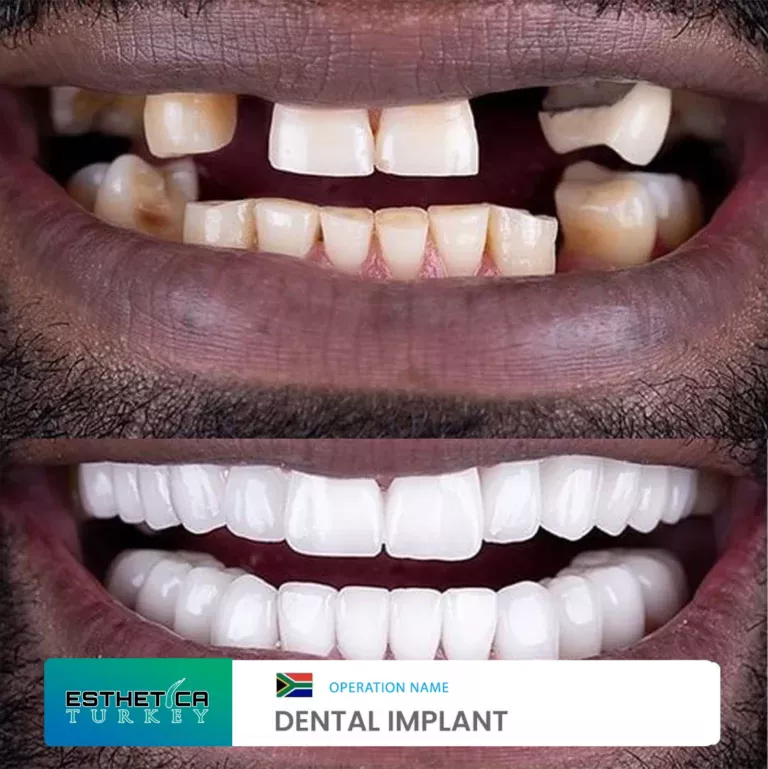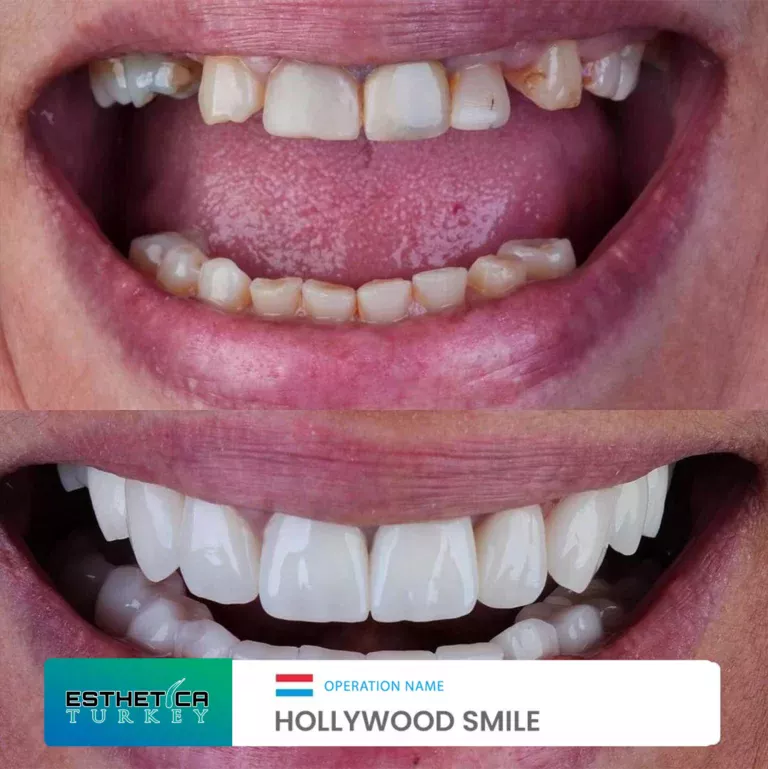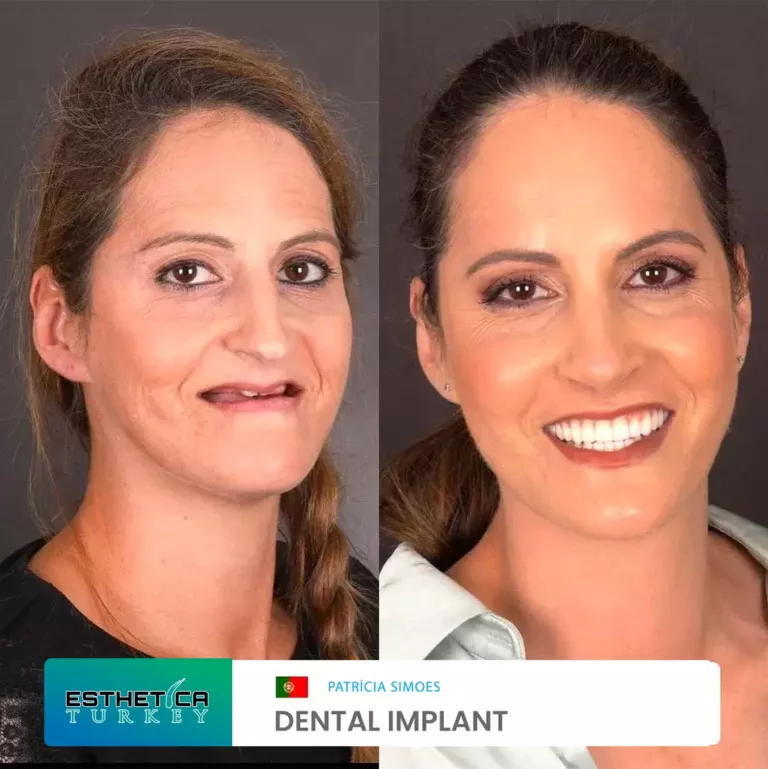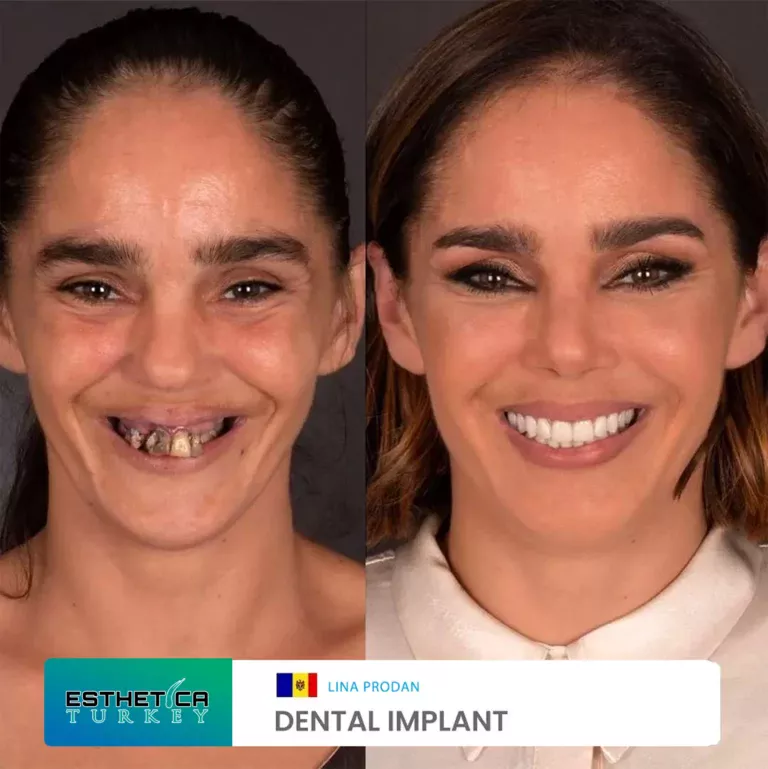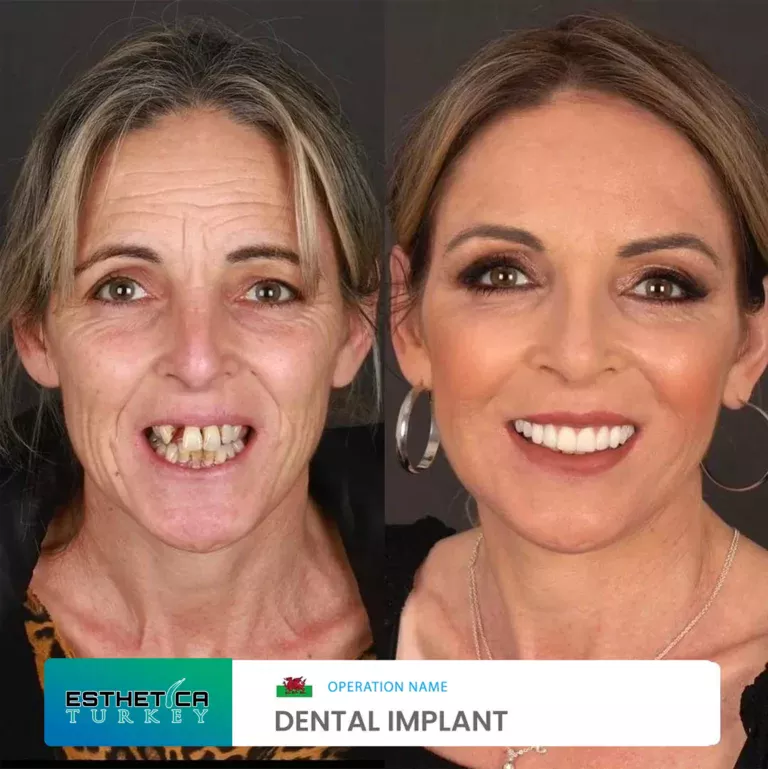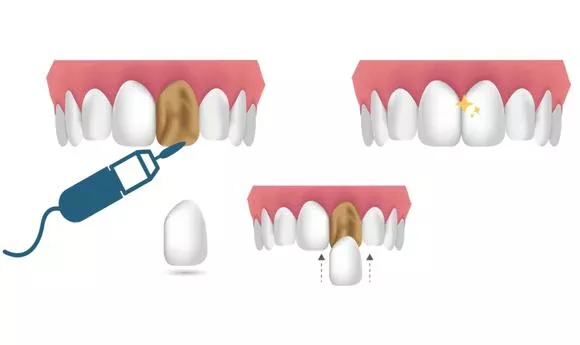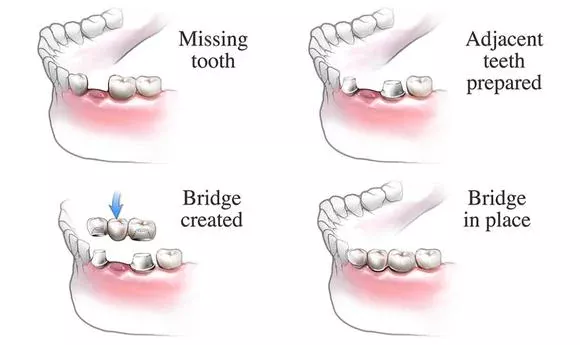Restoring Teeth with Beauty and Function
Welcome to our clinic’s website, where we provide valuable information about dental crowns in Turkey. In this article, we will explore what dental crowns are, the different types available, and what patients can expect before, during, and after the operation. If you are considering dental crowns as a solution for restoring damaged or aesthetically compromised teeth, read on to learn more.
What are Dental Crowns?
Dental crowns, also known as caps, are prosthetic restorations that cover the entire visible portion of a tooth. They are designed to restore the tooth’s shape, size, strength, and appearance, providing durability and enhancing its functionality. Dental crowns are custom-made to match the color, shape, and alignment of the natural teeth, resulting in a seamless and natural-looking smile.
Types of Dental Crowns:
1. Porcelain Crowns: Porcelain crowns are popular for their excellent aesthetic properties. They mimic the natural translucency and color of teeth, making them virtually indistinguishable from surrounding natural teeth. Porcelain crowns are ideal for front teeth or any visible areas of the mouth.
2. Metal Crowns: Metal crowns, typically made of gold or silver alloy, are highly durable and resistant to wear. Although they are not as aesthetically pleasing as porcelain crowns, they are often recommended for molars or teeth that require additional strength due to biting forces.
Before the Operation:
Before getting dental crowns, patients will have a comprehensive dental examination and consultation with a dentist. During this consultation, the dentist will evaluate the condition of the affected tooth or teeth, discuss the desired outcome, and create a treatment plan. X-rays or impressions may be taken to aid in the planning process.
During the Operation:
The dental crown procedure typically involves two visits to the dentist. During the first visit, the dentist prepares the tooth by removing a small portion of the enamel to create space for the crown. An impression of the tooth is then taken to create a custom-made crown. A temporary crown is placed to protect the tooth while the permanent crown is being fabricated in a dental laboratory. During the second visit, the temporary crown is removed, and the permanent crown is carefully fitted, adjusted, and permanently bonded to the tooth.
After the Operation:
After receiving dental crowns, patients may experience some sensitivity or discomfort initially, which should subside within a few days. It is important to follow good oral hygiene practices, including regular brushing, flossing, and attending dental check-ups. With proper care, dental crowns can last for many years, providing a functional and natural-looking smile.
Dental crowns in Turkey offer a reliable and effective solution for restoring damaged or aesthetically compromised teeth. By understanding the procedure, the different types of dental crowns available, and the pre- and post-operative care, patients can make informed decisions and achieve a confident and beautiful smile. Consult with our experienced dentists to discuss your specific case and receive personalized guidance throughout the process.

